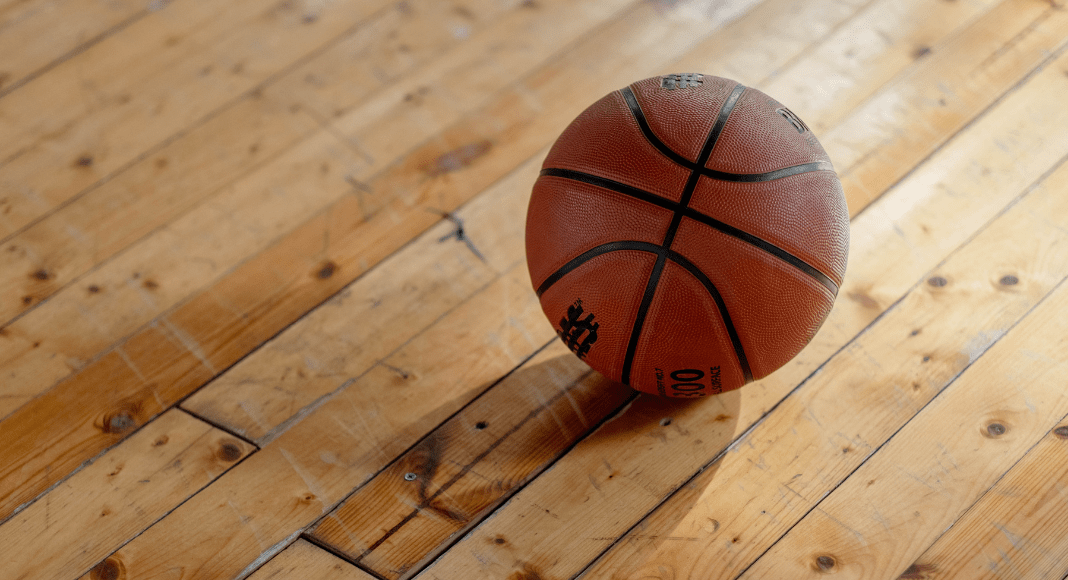 As modern-day parents, we try to limit the amount of TV our kids are watching each and every day, but of course, there are times we purposefully try to add academic topics into our daily lives. Isn’t that the goal? Kids should see that the subjects and standards they are learning at school are used in life. Well, this accidentally happened last year during the Men’s NCAA March Madness Basketball Tournament.
As modern-day parents, we try to limit the amount of TV our kids are watching each and every day, but of course, there are times we purposefully try to add academic topics into our daily lives. Isn’t that the goal? Kids should see that the subjects and standards they are learning at school are used in life. Well, this accidentally happened last year during the Men’s NCAA March Madness Basketball Tournament.
Last year, my then four-year-old became obsessed with sports. All things sports, if he wasn’t playing sports, he was watching sports with his dad or even drawing endless amounts of pictures of different sporting events and writing the team names as banners around our house. We let him fill out his first bracket last year, and he got so into it that it became this fun yet intense family competition. And that was just half of it. The actual game-watching was the absolute best.
But what we learned while he was watching the endless amounts of games was that he was improving his math skills at quite a fast rate.
Math Skill #1: Number Recognition
Younger kids can start by looking at the player’s uniforms and identifying basic numbers during the March Madness games. This leads to conversations about place value and understanding the worth of numbers. Once this skill has advanced, looking at the score, time, or other numbers at the bottom of the screen is great practice.
Math Skill #2: Comparing Numbers
This is the skill that blew my mind when my four-year-old started doing this last year. He would look at the score and say it was “28 to 33,” and he would be able to tell me which team was winning by identifying which score was the larger number. He mastered this skill after understanding the basics of number recognition and place value.
Math Skill #3: Basic Addition/Subtraction Skills
My five-year-old has become proficient in adding and subtracting skills because, during the game, we will ask him how much a team is winning or losing by. He started by counting up, using his fingers, etc., but now he is able to use mental math to tell the sum or difference of the score. He is also learning how to count by 2’s and 3’s when he watches! March Madness is the perfect time to keep practicing this basic and very important math skill.
Math Skill #4: Fractions/Percentages
Older kids can focus on the percentages and fractions you see throughout the March Madness tournament, easily following team statistics. This could be simply reading and identifying those fractions or percentages they show when discussing free throw percentages or 3-pointers. Being exposed to and understanding the use of those math terms in real life makes math more interesting to them. Older kids can also look at the odds of winning through the bracket itself. Looking deeper into wins/losses can be fun for kids to explore as well.
Math Skill #5: Telling Time
Although there is not an analog clock on during the games, there are easy conversations that discuss remaining time, shot clocks, etc. A simple conversation about how it may show 1:00 for a minute, and then the next number they see is 0:59. Understanding minutes, hours, and seconds is a great foundational skill for learning to tell time.
BONUS: Family Bonding
Everyone fills out a bracket. My kids get so excited to see who has red (incorrect pick) and green marks (correct pick) on their brackets. And have no fear; my kids are not glued to the TV or staying up exceptionally late at a young age. We recap the wins/losses the next morning when they wake up the majority of the time. Don’t forget to watch the Women’s NCAA games as well.
Additional Non-Math Learning:
Social Studies/Geography
Kids can look up where teams are located on the map. They can also do some research on the mascots, whether they are learning about a new animal or a figure in history.
Early Learners
Are your kids not ready for intense math lessons during the game? Have simple conversations about team colors, letters/numbers they identify, repeating words, and even encourage imaginative play with sports.
Literacy
Have your kids read more about basketball, colleges, sports, majors, players, etc., to learn more about the game of basketball. Simple reading during the game to practice by pausing the screen and allowing them to read the text on the TV is powerful as well. Don’t forget adding captions can do wonders for kids learning how to read.
And one more thing… Boiler Up!








